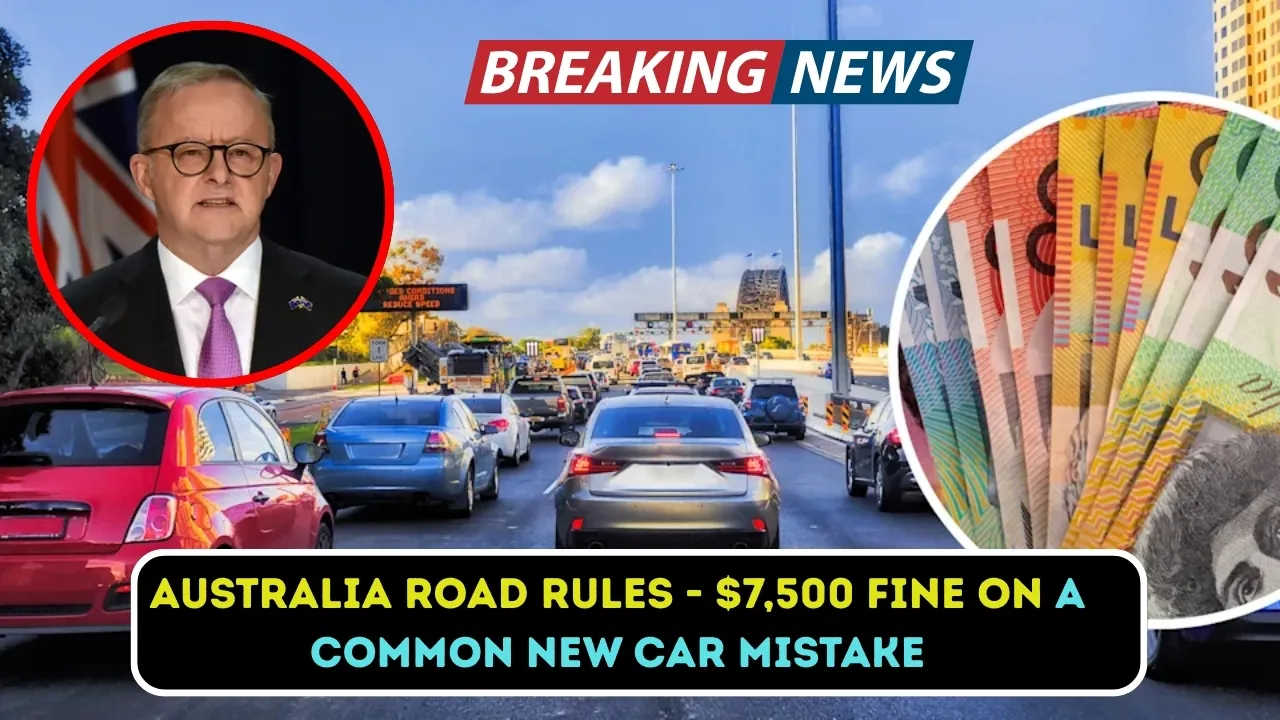One of the most expensive mistakes an Australian driver can make in 2025 is being caught driving an unregistered vehicle. State and territory regulators have confirmed that fines can reach up to $7,500, depending on the jurisdiction, vehicle type, and whether the driver is a repeat offender. This is among the heaviest penalties for a single road rule breach in Australia, and authorities stress that driving unregistered is not simply an administrative slip, but a serious road risk with consequences for both drivers and other road users.
Why Vehicle Registration is Crucial
Vehicle registration is more than just a routine bill. It is the process by which authorities confirm a car, motorcycle, or heavy vehicle meets roadworthy standards and is covered by Compulsory Third Party (CTP) insurance. Without registration, a vehicle is neither compliant with statutory safety checks nor insured for injuries in an accident.
If an unregistered vehicle is involved in a crash, the driver may be solely responsible for medical costs and damages. This leaves victims inadequately protected and exposes the driver to financial devastation. Authorities highlight that registration protects the community, by ensuring every vehicle carries basic insurance coverage.
How Drivers Fall Into Trouble
Interestingly, many offences are not intentional but come down to oversight or confusion. While most drivers once relied on paper reminders sent by post, many states have shifted toward electronic reminders and online renewal portals. Some motorists assume grace periods or postal reminders still exist, only to discover they are already driving illegally when stopped by police.
Transport departments have logged thousands of such incidents where drivers genuinely ‘forgot’ registration deadlines. Despite this, authorities say that responsibility lies squarely with drivers to remain aware and proactive.
Penalties Across Different States
While the headline fine of $7,500 applies to the heaviest cases, penalties differ across states and circumstances:
- New South Wales (NSW): Standard fines range up to $2,200 for light vehicle offenders, with court-ordered penalties escalating higher.
- Queensland (QLD): Fines vary between $313 and $1,724 depending on the type of vehicle and severity of offence.
- Victoria: Fines are strict for both light and heavy vehicles, with oversight also triggering vehicle impoundment.
- Heavy vehicles and repeat offenders: The steepest penalties apply here, with fines pushing up to $7,500 when court proceedings are involved.
Across all states, a driver found repeatedly behind the wheel of an unregistered car faces more severe court outcomes than someone issued a first-time infringement.
How Technology Catches Offenders
The rise of Automatic Number Plate Recognition (ANPR) technology has left little room for evasion. Highway patrol vehicles and police motorcycles now carry systems equipped to instantly scan plates and identify unregistered or uninsured cars.
Detection is immediate and linked to transport databases, so police no longer need to search manually. This has significantly increased the rate of fines issued in recent years, and drivers have far less chance of slipping through without being caught.
Authorities explain that such technology is intended to improve compliance while keeping unsafe or uninsured vehicles off the roads. But on a practical level, it has also meant a sharp rise in the number of individuals fined, reinforcing the importance of drivers staying up to date.
Lasting Consequences of the Offence
The financial impact of a fine can be devastating, particularly for low and middle-income drivers. But the penalties go beyond the dollar figure. Consequences may include:
- Vehicle impoundment until fines are paid.
- Possible suspension of licence.
- Denied renewal of registration until all outstanding amounts are settled.
- Requirement for added vehicle inspections to confirm roadworthiness before reinstatement.
Insurance implications are also significant. Driving unregistered invalidates compulsory insurance coverage, leaving drivers exposed to civil claims if they injure others.
Avoiding the $7,500 Mistake
Authorities strongly encourage drivers to stay proactive. Recognizing the financial strain registration can cause, many jurisdictions now offer:
- Digital reminders and email alerts to replace postal notices.
- Flexible renewal options including online, in-person, and phone payment systems.
- Payment plans, allowing drivers to pay in smaller instalments rather than lump sums.
Drivers are advised never to assume grace periods exist. In most states, the fine is immediate once registration expires, even if by just a few days.
Balancing Safety With Fairness
Some critics argue the fines are extreme for what can be a simple administrative oversight. They point out that for drivers living paycheck to paycheck, losing track of renewal dates can feel like an innocent mistake, yet results in penalties worth several weeks of income.
Authorities counter this by highlighting the significant public safety risks of unregistered vehicles. Fines, while substantial, are meant not only as deterrents but as reminders of the importance of compliance. They also point out that with online portals, direct debit systems, and reminder services now widely available, there are few excuses for not keeping registrations up to date.
Conclusion
Driving an unregistered vehicle in Australia in 2025 can attract penalties as high as $7,500, making it one of the most expensive traffic offences on record. While amounts vary between states and the specific vehicle type, all regulators stress that registration is more than paperwork—it is a guarantee that vehicles meet safety standards and are insured for public protection.
Whether caught through routine road checks or identified instantly by ANPR technology, drivers who neglect registration face severe financial, legal, and insurance consequences. The message from authorities is clear: stay proactive, renew on time, and take responsibility before a minor oversight leads to one of the costliest fines on the road.

